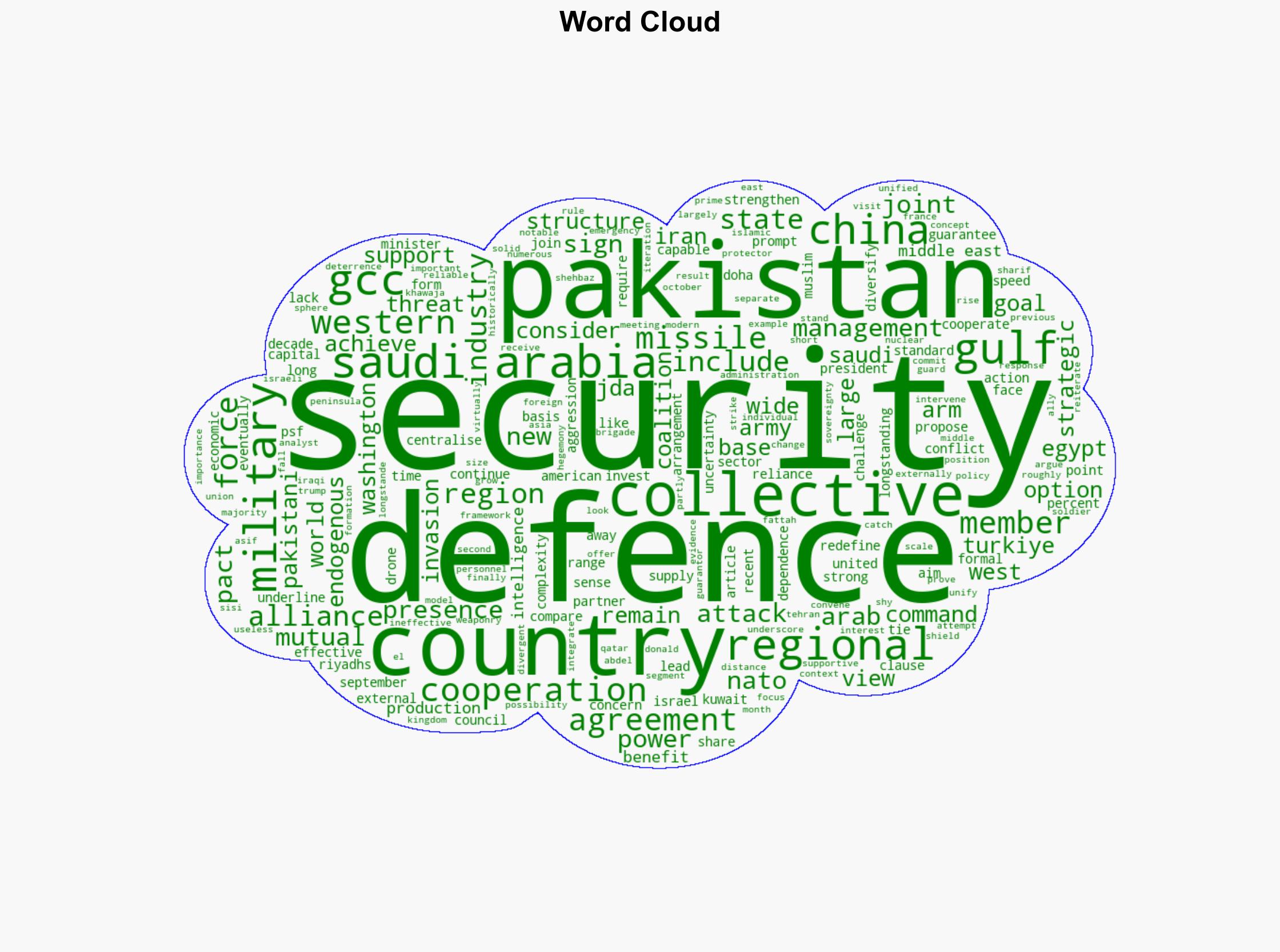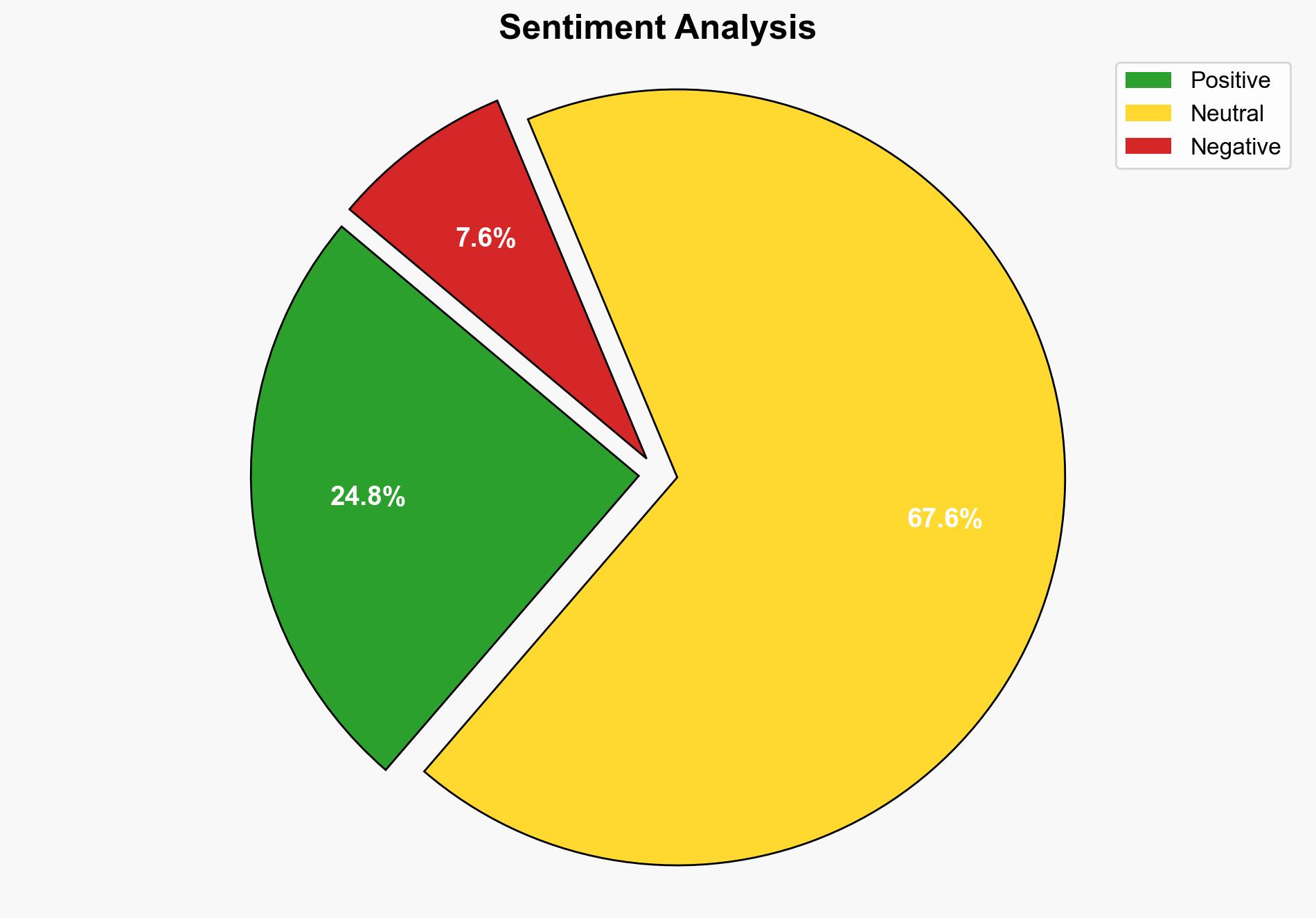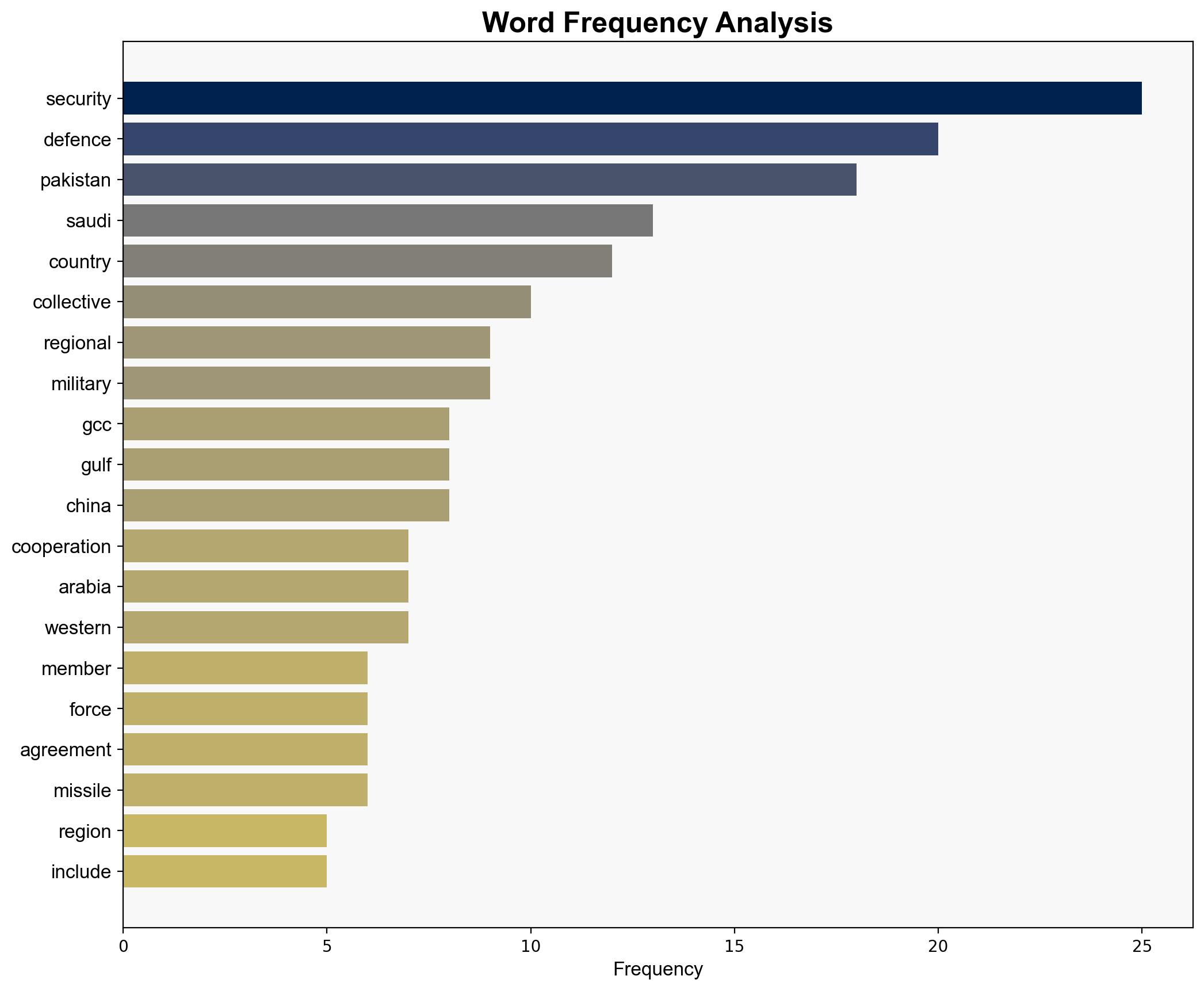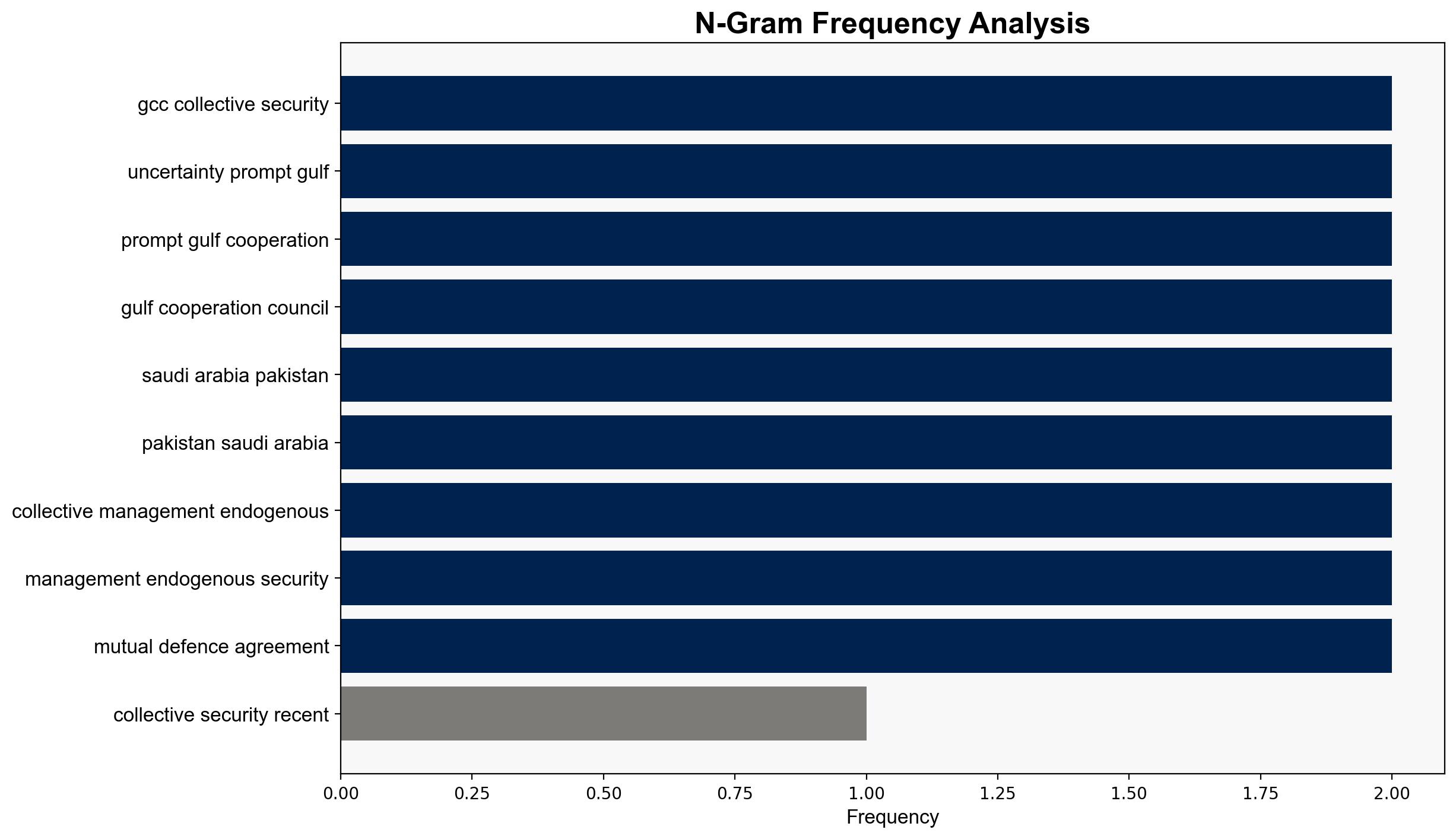The GCC and collective security – Al Jazeera English
Published on: 2025-11-11
AI-powered OSINT brief from verified open sources. Automated NLP signal extraction with human verification. See our Methodology and Why WorldWideWatchers.
Intelligence Report: The GCC and collective security – Al Jazeera English
1. BLUF (Bottom Line Up Front)
The Gulf Cooperation Council (GCC) is exploring new security arrangements due to growing uncertainty about the reliability of Western security guarantees. The most supported hypothesis is that the GCC will pursue a hybrid approach, combining external alliances with regional collective security mechanisms. Confidence Level: Moderate. Recommended action includes fostering regional defense collaborations while maintaining strategic ties with Western powers.
2. Competing Hypotheses
Hypothesis 1: The GCC will shift towards a predominantly regional security framework, reducing reliance on Western powers. This is supported by recent defense pacts with countries like Pakistan and the potential involvement of regional powers such as Egypt and Turkiye.
Hypothesis 2: The GCC will adopt a hybrid security strategy, maintaining Western alliances while developing regional collective security mechanisms. Evidence includes ongoing Western military presence and the GCC’s historical reliance on Western defense systems.
The second hypothesis is more likely due to the GCC’s historical ties with Western nations and the complexity of establishing a fully independent regional security framework.
3. Key Assumptions and Red Flags
Assumptions: The GCC perceives a decline in Western reliability as a security guarantor. Regional powers are willing and able to fill this security gap.
Red Flags: Potential overestimation of regional powers’ military capabilities and political cohesion. Risk of misinterpreting Western strategic priorities in the region.
4. Implications and Strategic Risks
Potential risks include increased regional military competition, especially if the GCC’s actions are perceived as threatening by Iran. Cybersecurity threats could escalate if regional powers enhance their military capabilities. Economically, increased defense spending may strain GCC economies. Informationally, narratives around GCC’s security strategies could be exploited by adversaries to sow discord.
5. Recommendations and Outlook
- Encourage GCC to develop robust regional security mechanisms while maintaining strategic ties with Western allies.
- Promote confidence-building measures with Iran to mitigate regional tensions.
- Best-case scenario: Successful integration of regional and Western security frameworks enhances GCC stability.
- Worst-case scenario: Regional security initiatives falter, leading to increased vulnerability and regional instability.
- Most-likely scenario: A gradual shift towards a hybrid security model, balancing regional and Western alliances.
6. Key Individuals and Entities
Shehbaz Sharif (Pakistani Prime Minister), Abdel Fattah el-Sisi (President of Egypt), Khawaja Asif (Pakistani Defense Minister).
7. Thematic Tags
Regional Focus
Structured Analytic Techniques Applied
- Causal Layered Analysis (CLA): Analyze events across surface happenings, systems, worldviews, and myths.
- Cross-Impact Simulation: Model ripple effects across neighboring states, conflicts, or economic dependencies.
- Scenario Generation: Explore divergent futures under varying assumptions to identify plausible paths.
- Cognitive Bias Stress Test: Structured challenge to expose and correct biases.
- Network Influence Mapping: Map influence relationships to assess actor impact.
Explore more:
Regional Focus Briefs ·
Daily Summary ·
Methodology





